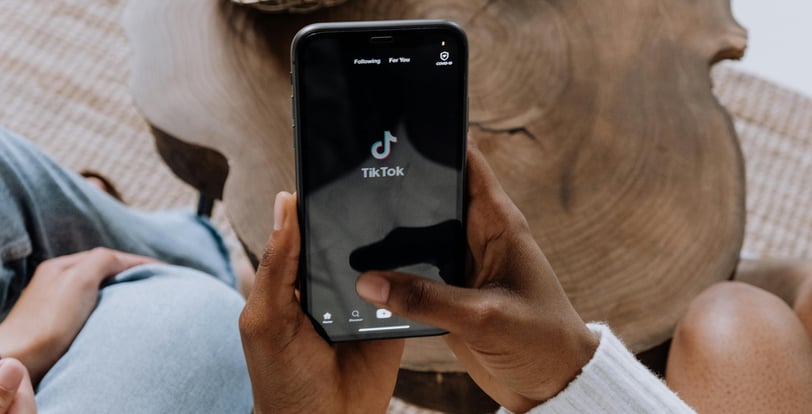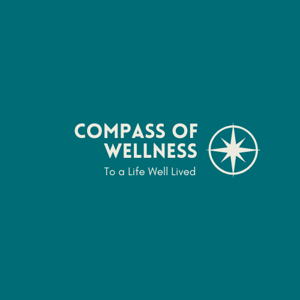The TikTok Ban Might Be a Good Thing
This article examines the dual impact of TikTok and calls for a more mindful approach to digital consumption, offering strategies to reduce dependence on technology and prioritize well-being.
2/13/20254 min read


Introduction
While I recognize TikTok’s positive impact on American society—for example, supporting businesses, raising awareness on issues like climate change and social justice, and fostering creativity and community—it’s important to acknowledge the potential downsides. The TikTok ban, though controversial, can be seen as an opportunity for reflection and growth. It serves as a reminder of the real-world consequences of our over-reliance on digital platforms.
TikTok’s value is undeniable; it's a powerful tool for income, inspiration, and information. But like anything, it's not without flaws. Despite its benefits, the platform has been linked to negative effects on social development and mental health, particularly among youth. Children and young adults are especially impressionable, and constant exposure to the overwhelming stimuli of “doom-scrolling” can lead to addiction. Dr. Anna Lembke, an addiction psychiatrist, highlights in her book Dopamine Nation that easy access to addictive behaviors is a major risk factor for addiction.
TikTok's Addictive Nature
The addictive nature of TikTok is partly due to its accessibility and the algorithm tailored to keep users engaged. As the American Society of Addiction Medicine explains, addiction often involves compulsive behavior that persists despite negative consequences. We've all seen the outbursts when children are separated from their devices, and the same applies to adults—could you go without your phone for a day, a week, or even two? I understand we are living in a digital era, but our constant digital consumption and connection is outpacing our ability to adapt to it. Our overuse and over-reliance on our phones and social media has led to a depletion of our cognitive abilities. This affects our memory, our ability to think critically, and our ability to process information. It shortens our attention spans, increases rates of anxiety and depression, and diminishes our social and emotional responses. Additionally, it increases the likelihood of a sedentary lifestyle and reduces our physical activity- a critical factor for our brain’s physiologic and psychological health.
In an interview with Steven Bartlett, host of the UK’s top podcast Diary of a CEO, neuroscientist Dr. Wendy Suzuki addressed that while social media can make us feel connected, it doesn’t replace real-life social interactions—and our brains recognize this. Children today, adults even, would much rather stay in their rooms and connect to their devices than to connect to nature or another human being because going out into the real-world has become far too anxiety-inducing. Dr. Suzuki explained our brains change shape based on what we are consuming, and if we are constantly consuming information that devalue our perception of ourselves or of the world, rather than enrich it, our reality becomes a reflection of that.
Not only that, but myriad social media users seek validation through the amount of views, likes, or comments that they receive on what they post or share. When our notifications don’t satisfy our expectations, this can result in feelings of low-self esteem and isolation. In an article posted by CSP Global titled, “Emerging Trends in Psychology: Tech Dependency,” the authors state,
“When we are constantly anticipating a technological interaction — a phone call, text, email, or social media notification — our bodies and brains respond in a way that registers as anxiety. In short, smartphones and other devices create a waiting game environment. The user is constantly anxious about missing out on what’s happening in the digital world.”
This feeling is better known as FOMO, or the fear of missing out. But I assure you, whatever is meant for you, will never miss you.
While not all content on platforms like TikTok or social media is harmful, waking up to distressing news like war, natural disasters, or political issues immediately triggers stress. This keeps our cortisol levels high throughout the day, and further depletes our health. My goal isn’t to demonize social media, but to highlight its impact on our mental and physical well-being. Technology is essential in many areas of life, but it’s important to use it consciously, so it remains a tool instead of becoming a life force.
Strategies for Conscious Use of Digital Consumption
Just as there are countless ways to use technology, there are also countless ways to moderate its use in order to limit its harmful repercussions on our health. To minimize our dependency on social media and technology, here are some strategies:
Leave your phone off your bed at night to avoid checking it first thing in the morning.
Start your day with gratitude to lower cortisol levels and focus on the positive.
Take three deep breaths before checking your phone for messages or notifications.
Move your body for 30 minutes—whether through walking, yoga, or a workout video—to give both your mind and eyes a break.
Use a physical wallet, instead of your phone, when paying at stores.
Leave your phone out of the bathroom to break the cycle of constant checking.
Set screen time limits and stick to them. When the limit is reached, shift focus to something enriching.
Switch digital tools for physical ones—read a physical book, use a paper planner, or paint on a canvas.
Engage in face-to-face interactions—whether with friends, family, or even a stranger like a cashier or bus driver.
Conclusion
By incorporating these habits into our daily routines, we can regain control over our digital consumption and prioritize our mental health. Ultimately, while TikTok offers valuable content and connections, its potential for harm—especially when it becomes an addiction—cannot be overlooked. The ban may seem drastic, but it could lead us toward a healthier, more mindful relationship with technology. So take time to reflect on your use of digital media, and regain control over your life.
References
Admin-Risepoint. “Emerging Trends in Psychology: Technology Dependence.” CSP Global, 24 Nov. 2021, online.csp.edu/resources/article/technology-dependency/.
Diary of a CEO (2024, May 23). The Exercise Neuroscientist: NEW RESEARCH, The Shocking Link Between Exercise And Dementia! [Video]. YouTube. https://www.youtube.com/watch?v=5o-tRub-0pQ&t=4788s.
Lembke, Anna. M.D., Dopamine Nation. Penguin Random House LLC, 2021.
